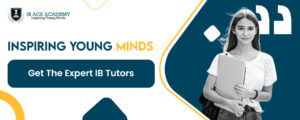The International Baccalaureate Diploma Programme, or IBDP, is one of the toughest and most rewarding diploma programmes in the world. Designed for students in the age group of 16-19, this programme tingles the creative, critical, and intellectual nerves of the students. While the course itself is not something to be afraid of, it does require a lot of hard work and patience to finally succeed. There are six core subjects that one is required to undertake. You, as an IB student, need to pass all the formal examinations along with the internal assessment. Besides, a student is also expected to write an Extended Essay. Another major component of the diploma is the ‘IB Theory of Knowledge’. The theory of knowledge covers all the dimensions in which one can think of knowledge. Knowledge is an intangible asset in our lives. There are different ways in which different people acquire and share knowledge. The Theory of Knowledge seeks to emphasise the various aspects that involve the acquisition of knowledge, its transferability to others, and its impact on changing lives.
A student critically delves into the sphere of knowledge and derives insights from it.
A student tries to understand how knowledge is acquired, which involves understanding the sources of knowledge. Then, what is the importance of facts, reason, and our own perceptions in this new-found acquisition? It further strives to dive into the ethical and philosophical questions of the importance of knowledge in our lives.
In essence, TOK aims to critically develop a student’s understanding of knowledge and its dimensions.
In this particular essay, we will try to understand comprehensively what the Theory of Knowledge represents in IBDP.
Let’s get going:
- Let the cat out of the bag:
Half of the time, students are seen struggling because they are unaware of what is expected of them.
The Theory of Knowledge comprises two parts. One is the 1600-word TOK essay that is written on any one of the topics designated by IB. This 1600-word essay is not a mere collection of words but rather an attempt to present your critical and creative thinking in the given domain. You need to research thoroughly in order to write a stellar essay. This aims to improve the ability of the students to think critically and dissect each sphere of the research topic. Students are required to give real-life examples or explain their cases through real-life studies. A score of ten is awarded in this.
The next component is the TOK Presentation or Exhibition. This involves a presentation in the form of a group presentation and discussion. An ideal presentation should be summed up in ten minutes, followed by a ten-minute discussion. The sole purpose of the presentation is to present real-life findings and make your research relative. For example, we are all aware of the food challenges faced by the world, but discussion of their impact in a particular area that serves as a model for the thesis of your research is what TOK strives to achieve.
- Multitudes of the Facet of Knowledge:
The TOK seeks to focus on many dimensions. It is interdisciplinary in its approach. Many fields of study are impacted by and used in the Theory of Knowledge. Mathematics, science, history, and others are used in their respective contexts to foster the research. For example, if your research is based on the hunger crisis across the world, you need to apply statistical methods to enumerate the data. You may also require mathematical tools to study the patterns. History can be researched to examine past trends. This interdisciplinary nature of TOK requires a student to go beyond one subject and be comprehensive in their findings. - The idea is to enhance skills:
TOK aims to significantly improve your skills, and this happens because of its richly designed curriculum. You need to understand knowledge critically in order to develop it. Examining knowledge from a critical viewpoint is as necessary as its acquisition. This helps broaden a student’s perspective and even modify it. Skills can be developed to foster open-mindedness and a global perspective. Besides, the group discussion and presentation, try to develop communication skills. - Practical Implications of TOK:
The Theory of Knowledge is not just an academic exercise; the studies are also practically significant. TOK aims to dive into the practical world of various professions and provide them with an informed and handy perspective. The idea is to help various professionals attain the knowledge required in their field of study by offering them insights into the real-life case studies conducted for this purpose. - Roadblocks to TOK:
TOK strives to tingle the critical bones of a student, which then further requires a lot of research. This critical research, however, is not that easy, and you need to be patient enough to examine the contents thoroughly and then develop a clear understanding. TOK in itself is complex as it involves you applying the theoretical concepts to the practical world and then presenting your findings around the same.
So, TOK gives an opportunity to serve as the model for the practical application of the theoretical world. Every student can take significant benefit from it by researching thoroughly.


